Reducing single-use plastics has become one of the most important steps individuals can take to lessen environmental impact in their everyday routines. Most disposable plastics, such as shopping bags, packaging, and produce wraps, are used for only a few minutes but can take hundreds of years to break down. Even after they degrade, they often leave behind microplastics that enter oceans, soil, and food systems. Fortunately, many practical and accessible alternatives exist, making it easier for shoppers to adopt more sustainable habits without sacrificing convenience. From reusable bags to eco-friendly storage solutions, these options are designed to be durable, affordable, and simple to integrate into daily life. By choosing these alternatives, consumers help cut down plastic waste at its source and reduce the demand for single-use items. Whether grocery shopping, visiting markets, or running errands, these substitutions offer a cleaner way to meet everyday needs while protecting the environment.
1. Reusable Cloth Shopping Bags
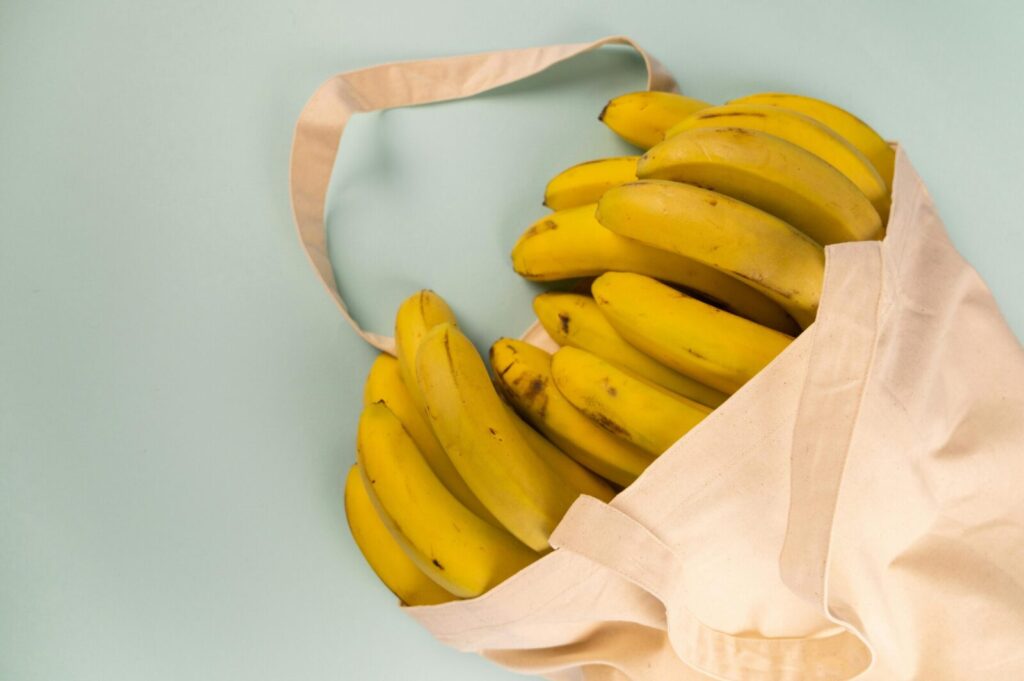
Reusable cloth shopping bags are one of the most practical alternatives to single-use plastic bags because they are sturdy, washable, and easy to carry. Made from materials like cotton, canvas, or jute, these bags can handle heavier loads and last for years, reducing waste with every use. Many stores now offer incentives for shoppers who bring their own bags, making the switch even more rewarding. Cloth bags also come in many sizes and designs, allowing people to choose options that suit different types of shopping trips. Their durability and reusability make them a smart first step toward sustainable shopping.
2. Mesh Produce Bags

Mesh produce bags replace the thin plastic bags commonly found in grocery stores. These lightweight bags are perfect for fruits, vegetables, and even bulk items like nuts or grains. They allow air circulation, helping produce stay fresh longer compared to sealed plastic. Most mesh bags are washable and made from cotton or recycled materials, making them both sanitary and environmentally friendly. Because they are compact, they are easy to carry inside a larger tote or backpack. By choosing mesh produce bags, shoppers can significantly reduce the number of small plastic bags used during each grocery trip.
3. Reusable Silicone Food Bags
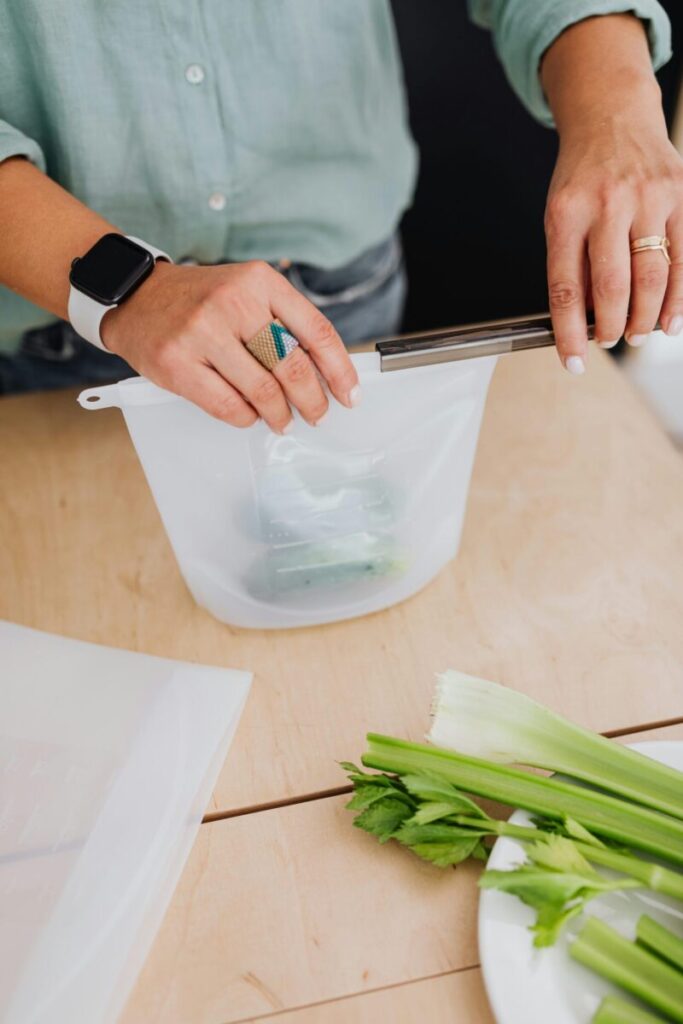
Reusable silicone food bags offer an excellent replacement for disposable plastic storage bags. Made from food-grade silicone, they can withstand heat, cold, and repeated washing. These bags are ideal for snacks, leftovers, meal prepping, and storing frozen items. Many come with airtight seals that keep food fresh without relying on single-use plastics. Their durability means one silicone bag can replace hundreds of plastic bags over its lifetime. They are also convenient for people with busy schedules since they are dishwasher-safe and durable enough for daily use. Switching to silicone bags greatly reduces home and shopping-related plastic waste.
4. Stainless Steel or Glass Containers
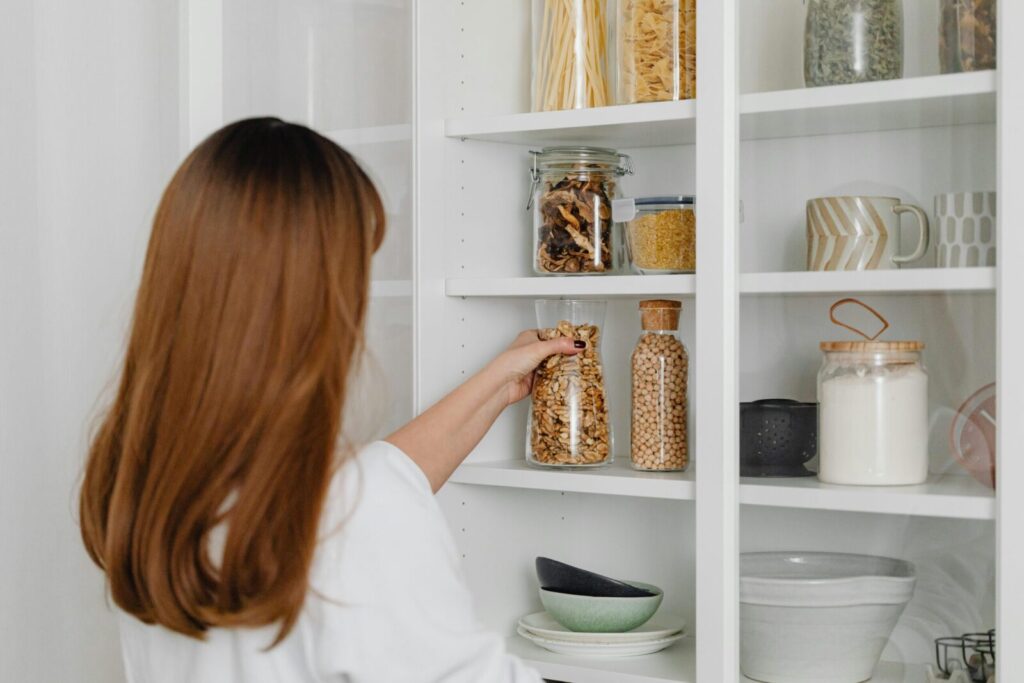
Stainless steel and glass containers are long-lasting options for storing food, buying bulk goods, or transporting meals. Glass offers visibility and is free of harmful chemicals, while stainless steel is lightweight and highly durable. Many shoppers bring these containers to refill stations, bakeries, or delis to avoid plastic packaging. Their airtight lids help maintain freshness and prevent spills during transport. Both materials wash easily and maintain their quality for years. These containers are ideal for anyone seeking a safer, reusable alternative that minimizes waste during everyday shopping or meal preparation.
5. Beeswax Food Wraps
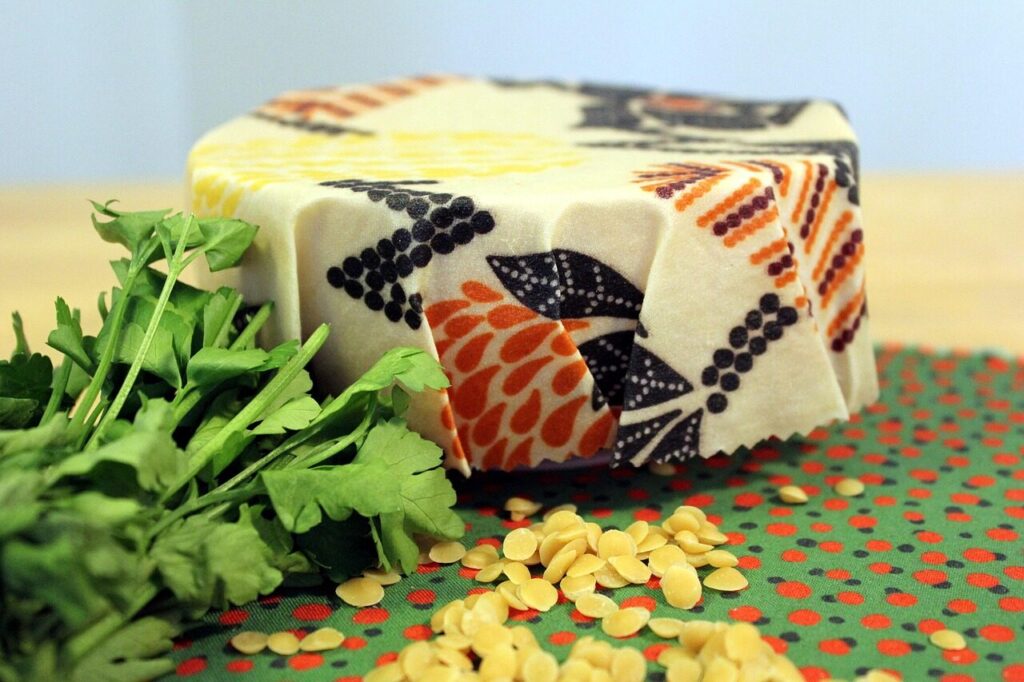
Beeswax food wraps are an eco-friendly substitute for plastic cling wrap. These reusable wraps are made from cotton fabric coated with beeswax, tree resin, and natural oils. They mold around fruits, vegetables, bread, and container edges using the warmth of your hands. Beeswax wraps are washable, biodegradable, and can last up to a year with proper care. They are perfect for shopping and storing items without relying on disposable plastic. Their breathable design helps keep food fresh, making them a practical and sustainable option for anyone looking to reduce plastic use in daily routines.
6. Refillable Glass Jars
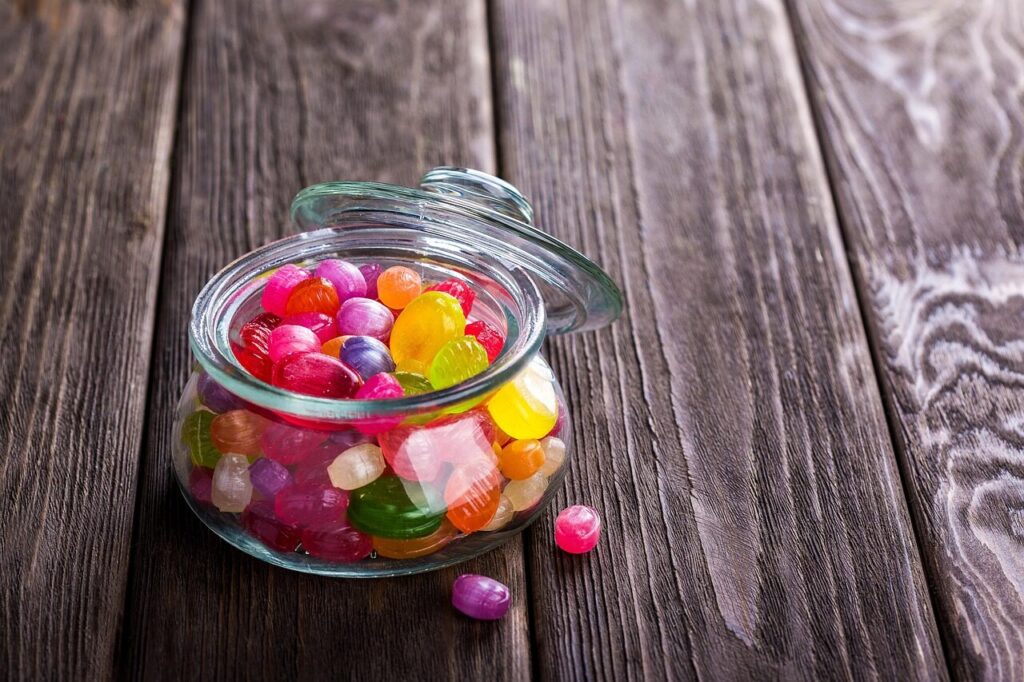
Refillable glass jars are ideal for purchasing dry goods such as grains, spices, coffee, and snacks from bulk stores. They eliminate the need for plastic packaging while offering durability and a long lifespan. Glass jars seal well, keeping items fresh and protected from moisture. Many shoppers label their jars for easy organization at home. Stores that support bulk shopping often encourage customers to bring their own jars by offering discounts or pre-weighing containers. This simple swap significantly cuts down waste and supports a more sustainable lifestyle while maintaining the convenience of organized and reusable food storage.
7. Reusable Thermal Bottles

Reusable thermal bottles are an excellent alternative to single-use plastic water bottles and beverage containers. Made from stainless steel or insulated materials, they can keep drinks cold or hot for long periods. Many people use them for water, coffee, tea, or juice throughout the day. Thermal bottles are durable, easy to clean, and widely available in many capacities and styles. Some shops even allow customers to refill drinks using their own bottles, reducing plastic waste and promoting eco-friendly habits. Consistently choosing a reusable bottle eliminates countless disposable containers over time.
8. Compostable Paper or Bamboo Packaging

Compostable paper or bamboo packaging serves as a sustainable alternative to plastic takeout containers and wrappers. These materials are biodegradable and break down much faster than plastic, reducing environmental impact. Bamboo is especially durable and renewable due to its rapid regrowth rate. Paper-based packaging, when sourced responsibly, offers a safe and practical way to wrap or carry goods. Many markets, bakeries, and eco-friendly stores are transitioning to these options because they are both functional and planet-friendly. Using compostable packaging helps shoppers enjoy convenience while contributing to a cleaner environment.
9. Reusable Totes for Bulk and Market Shopping
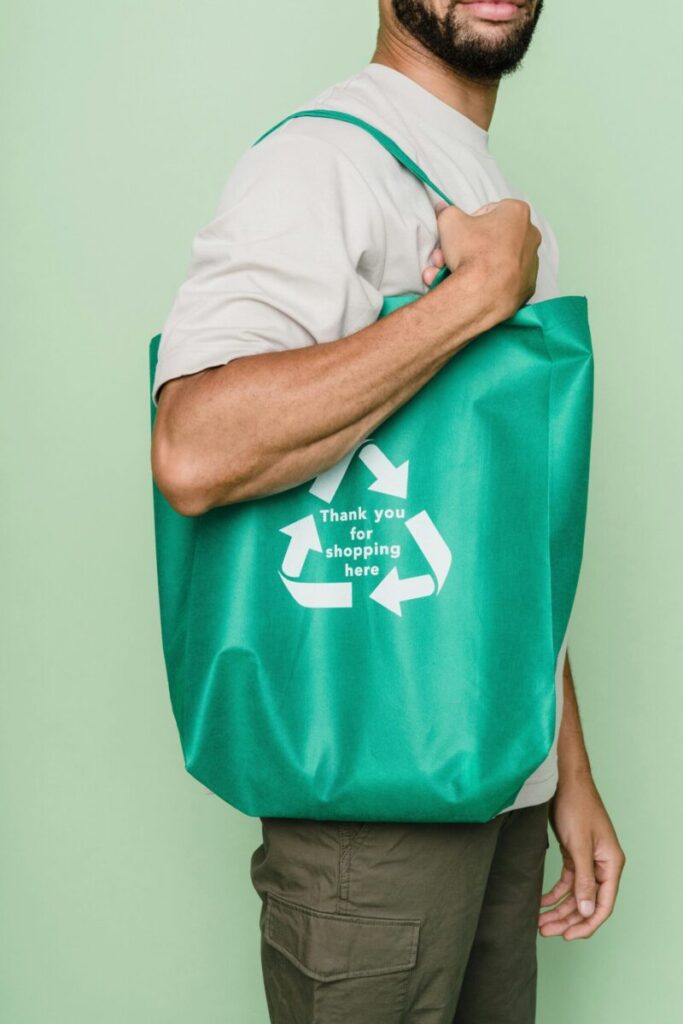
Reusable totes are versatile bags designed for carrying larger or multiple items during market visits or grocery runs. Made from sturdy materials such as canvas, recycled plastics, or jute, they can withstand a significant amount of weight. Their wide openings and reinforced handles make them perfect for fresh produce, packaged goods, or household items. Some totes come with compartments that keep items organized during transport. By using these bags instead of plastic, shoppers greatly reduce waste while enjoying a durable and dependable shopping companion. Reusable totes simplify errands and support long-term sustainable habits.
Comments